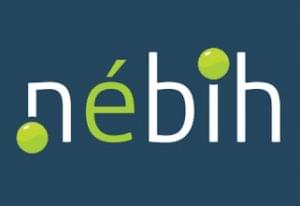Nébih’s APIs
The real value of the data asset that underpins food chain surveillance activities is determined by its quality and up-to-dateness. The question arises: how can this be achieved simply, without increasing the administrative burden? The answer is simple: Nébih goes to the house for the data! Because company management systems can establish direct data connections in more and more areas supervised by Nébih.

Nébih sees in the regularization of APIs the possibility of facilitating the provision of more data affecting the actors of the agricultural and food chain, and the promotion of innovation in the public sector. As a first step in 2023, the Electronic Farm Log (e-GN) and the notification system for the use of antibiotic-containing preparations used for the treatment of food-producing animals (AMR) were created, but soon direct administration will also be available at the Soil Database data service (Talajweb). In addition, Nébih will also help its customers with the design of additional interfaces, since the machine data service improves the digital quality of the organization’s data assets and raises the standard of public services through the development of internal processes. There is a lot of interest in the developments: a number of software development companies serving Hungarian agriculture would like their farm management program to be able to connect to these services. The reason for this is that it means a real added value for the product if the user can make the fulfillment of state obligations more efficient thanks to the uniform data structure and the regulated communication channel between the machines.
What is an API?
The API (Application Programming Interface) is the Application Programming Interface, which is one of the most common IT solutions today. Today, everyone takes it for granted that they can communicate with anyone, anywhere in the world, at any time, that is: devices are connected to each other, “follow” each other’s status, help with navigation and determine the position of other devices. These convenience benefits are mostly due to the API. In summary: APIs are helpful in establishing connections between computing devices and programs, in flexible data exchange, and in the secure flow of information.
Is your neighbor’s API always greener?
In the business world, APIs have been used for various tasks for a long time, but public administration actors have only begun to introduce this technology on a wider scale in recent years. The reasons for this are complex, as the digital transition of the public sector across Europe faces challenges from economic, organizational, technical, cyber security and legal aspects. User benefits derive from the machine-to-machine connection. A good domestic administrative example of this is the online invoice program of the National Tax and Customs Administration, which has completely transformed the invoicing practice, because the entrepreneur can send data directly to the tax authority from his own smart device. Looking at Europe, we can find several approaches regarding the field of application of APIs. In addition to the integration of data transmission, the sharing of public interest data via API is also appearing in some administrative sectors, which shows that the establishment of a direct data connection between the parties promises mutual benefits in the longer term.
Nébih
Related news
Bird flu also appeared in Bács-Kiskun county, so the epidemic already affects six counties
In the past few days, the disease was identified in…
Read more >Nébih: Tesco also recalled millet balls from the market
Sorry, this entry is only available in HU.
Read more >A priority goal is the success and support of the domestic wine industry
The Hungarian wine industry is still one of the most…
Read more >Related news
“Road to economic neutrality” – Eastern or Western opening?
An important element of the government’s economic strategy and communication…
Read more >The distributor of Rama and Flora margarines has changed its name
The domestic distributor of the well-known and popular Rama, Flora,…
Read more >Henkel Hungary also set out the pink ribbon this year
The “Pink October” campaign started last year continues. The movement…
Read more >






